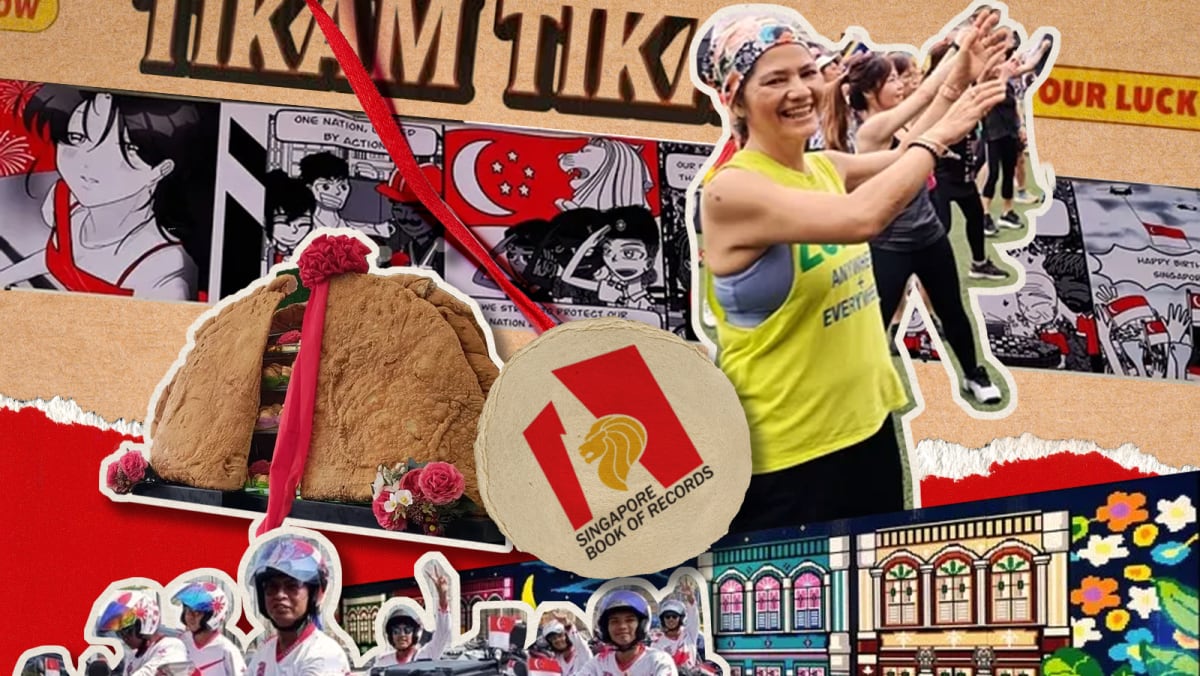According to its website, SBOR was formed “in response to widespread voices for a national body to administer and make local record breaking possible”.
“During that time, it looked strange that there were so many national books of records around, like in Malaysia, Indonesia, India and Vietnam, but not one in Singapore,” 67-year-old Ong shared over email.
“It was even stranger that prior to SBOR, Singaporeans could apply for a world record but not a local record.”
Additionally, the news usually featured people who were “successful in business, academic studies, sports” and other conventional fields, he pointed out.
SBOR provided a platform where people could highlight “new and unique” abilities, such as “extraordinary perseverance, skills or collections”.
CRITERIA FOR RECORDS
Over the decades, at least one skill has stayed constant: Extraordinary imagination.
With presumably myriad outlandish records constantly proposed (and rejected), SBOR has four main criteria that it adheres to.
First, the record must be quantifiable. SBOR turned down a restaurant who wanted to hold the title for “best chilli crab”, recalled Ong.
Second, the record must be safe and “not potentially hazardous”.
Third, the record should be “breakable in the foreseeable future”.
For example, Ong shared, SBOR wouldn’t accept “largest SG60 logo made of cards” as nobody would want to put up an SG60 logo next year, but it might propose “largest logo made of cards on a banner” as an alternative.
Fourth, the record must “arouse some public interest”, and cannot be seen as “trivial”.
